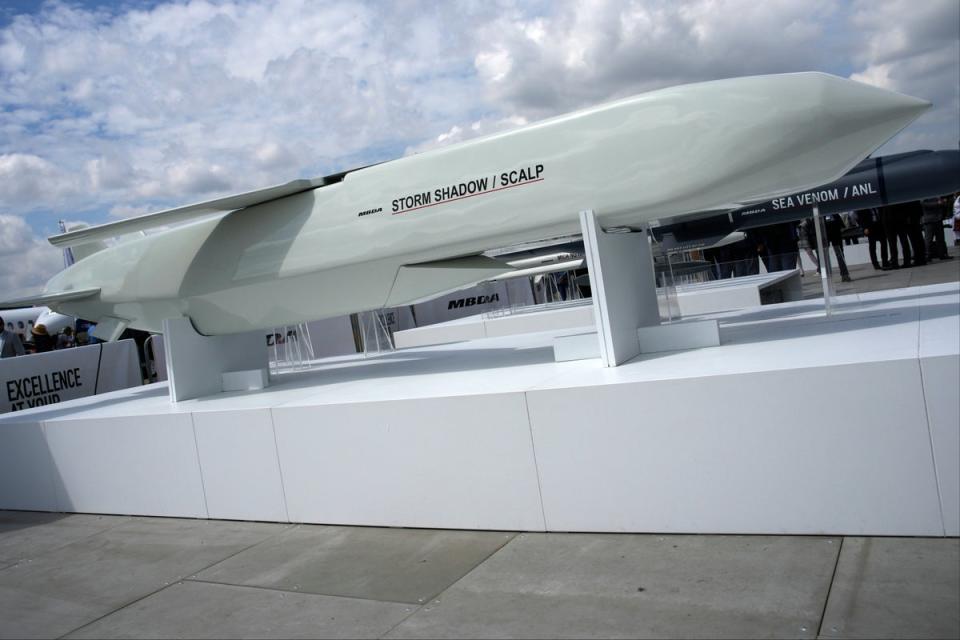
Elon Musk’s enthusiastic embrace of President-elect Donald Trump made him a super-villain for Democrats. But now that Musk has scored an influential position in Trump’s Washington, another Silicon Valley CEO — one who, unlike Musk, vocally supported Vice President Kamala Harris — has some unwelcome advice he thinks Democrats need to hear: It’s time to reconsider your feelings about the world’s richest man.
If the party wants to win future elections and tackle intractable challenges voters care about — like housing shortages, climate change and technological development — they should get behind Musk’s new role co-leading Trump’s government cost-cutting department, according to Aaron Levie, CEO of the cloud and file sharing company Box.
“Somehow they built up this animosity with Elon, and I’ve never thought it made any sense,” Levie said of Democrats on the POLITICO Tech podcast. “It’s not only a bad political strategy — see this election — but it’s just bad for the country.”
The following conversation has been edited for length and clarity. Listen to the full interview on POLITICO Tech.
We spoke in August about your support for the Democratic nominee, Vice President Kamala Harris. Election Night did not turn out as you hoped. I wonder where your head is at now.
There’s sort of two ways of thinking about it. There’s one, which is Trump won the presidency and finding the right ways to support a Trump administration in a number of areas where I think we can actually have a lot of good progress in tech and innovation and deregulation.
That’s been 90 percent of my focus mentally on this particular topic. I think there’s a lot of things that can be accomplished in the next four years with his agenda, and I certainly think Elon is going to be a very productive part of all that.
And then I think there’s another category, which is, Democrats need some introspection on what went wrong, maybe in the most tactical sense in the campaign, but probably in a broader sense of, how has the message not resonated? Why are the policies not working within the party? And what [does] the party need to do going forward?
I want to talk about both of those. Let’s just quickly start with that 10 percent. Everyone is offering their opinions right now on where things went wrong for the Democrats. What is your take?
I’m a voice of one, but even talking to Democrat-leaning friends in and outside the Valley and beyond, the view is that there’s not enough emphasis, in terms of policy and execution, on reasonable, pragmatic things that I think most people would want from their government. How do we have safe cities? How do we have more housing? How do we have better, more effective, higher quality education? How do we allow for an environment of more innovation and acceleration and abundance?
That hasn’t really been the set of topics that are coming out of the Democratic Party over the past maybe five-plus years, maybe 10 years. And I think it’s unfortunate, because I’m a believer that you can have a pro-business, pro-innovation, pro-high growth set of policies that also protect and create the right level of social safety net for those that are impacted or don’t have that ability to participate.
There are areas where you see potential to work with the Trump administration. You mentioned deregulation as one of those. Obviously, Elon Musk is going to be co-leading this new Department of Government Efficiency to eliminate regulations or programs that this incoming administration deems to be wasteful. I saw you post that there is significant opportunity there. How so?
If we want to have the 21st century in America look like the success we’ve had economically and that we’ve seen in the 20th century, on a relative basis to other countries, we should set up the country to be able to build more, do more, innovate more, move faster, accelerate into the future.
And so you want to piece apart, what are the areas of friction getting in the way? Sometimes it’s regulation. If you want to build housing in San Francisco, it’s regulation and zoning policies. If you want to build a data center somewhere in the U.S., you have a major energy crisis that you have to go and contend with.
I have friends working in climate tech — a very Democrat-adjacent type of space — that have not been able to build in blue states because of the overregulation and red tape that exists for getting things done and building things. There’s a lot of suffocation of innovation that’s happening in the country. So I think a systemic solution to that would be, how do you get rid of wasteful regulation and overhead in the government? This can be a very high impact area to drive faster innovation. It was something that I was championing on the Harris side, and so I’m fully in support of any solution that accomplishes this. Again, what Elon is focused on seems to be the best shot of making that happen right now.
There are Democrats that are worried and may push back if that deregulation allows projects to go through that may harm the environment, or pull back protections for disadvantaged or minority populations. Where is the line?
One hundred percent, and let me say that I worry conceptually about overdoing it, for sure. I’m not going to endorse any particular person’s worry.
Elon has this thing he shared publicly about the review of the impact of rocket launchers on specific species and populations and certain whales or sharks. And the amount of review overhead that goes into that for being able to get to space — I don’t know all the specifics, but you can imagine how, if you have layers and layers of every review, every paper, every piece of research you need to be able to go and do to get anything done. And the amount of bureaucracy then that has to approve building anything, at some point you kind of have to say, well, what is the bigger priority that we’re trying to solve?
Do we want more housing? Do we want more innovation? Do we want more abundance of access to technology and health care? And if you do, then at some point, you have to just say, ‘OK, these are strategic areas where we want to win in the 21st century.’
Then you do have to decide that we’re going to accelerate past all of the collective areas of overhead.
You want to do it in an insanely thoughtful way. To your point, if you’re impacting a very large population, or even maybe a minority group in a way that’s severe impact, then we have to be thoughtful about that. But there is a point where it can reach past the threshold of actually being productive. I think in a number of areas, we have gone past that point.
Silicon Valley can sometimes feel like a small town. Do you know Elon Musk?
I do, yeah.
Musk has emerged as a partisan figure. There are people questioning his business relationships with the government, whether that’s through SpaceX or StarLink. What’s your perspective on whether he’s the right guy for this job?
I think the incredible thing about Elon is that when he has a vision for accomplishing something, he effectively finds a way to manifest it into reality. Short of a scenario where the physics are just not possible, he’s an unrelenting force of nature in solving previously intractable problems.
I mean, when you look at rocket launches. … I just posted this thing on X a couple of days ago aboutthe cost of rocket launches over time. And it’s basically a flat curve with a tiny bit of improvement over time, up until the moment that SpaceX gets created. For decades, it cost the exact same to get to space, and then all of a sudden overnight, it’s a precipitous drop.There’s a lot of people out there saying, well, what’s the importance of space? Well, even if you don’t get into Elon’s biggest goal of civilization expanding into Mars, just take the most practical, near-term, capability — until you get the cost of space down, you don’t get internet satellites to be ubiquitous. It just becomes unaffordable to do it otherwise. And so now ask yourself, should we have billions of people connected to the Internet in areas that would previously not have had Internet access? Of course we should. So these are the things that we hold back by not accelerating innovation.
There’s a scenario where we don’t have these kinds of AI breakthroughs on a regular basis because we overregulate AI. Elon has this unstoppable ability to say, here’s a problem, it’s a massive problem. Everybody else that’s attempted to go after this problem has not succeeded. Another example is EV cars. I remember for years and years people would talk about EV cars. There were lots of attempts. And he just said, ‘No, we’re going to have an awesome-looking car. It’s going to be fast, it’s going to be consumer grade and it’s just going to get better and better.’ And everybody doubted him and it worked out. And it’s a $1 trillion company now.
And so I am going on faith that he wants to take that same approach to some of these systemic issues with burdensome regulation and red tape in the country that I think would unlock an era of growth and innovation. Now, you know, we have to do this in a way that is thoughtful and see where there can be negative consequences. But I don’t think there’s a better person for this particular task than Elon, because of how resistant the government normally would be to this type of change.
Would you encourage Democrats who are candidly skeptical, if not critical, to take a beat and give him time, give him a chance? Is that your take?
I think for some set of reasons, maybe it was unions, maybe just the sheer personality of Elon over time, but over the past X number of years, between some factions of the Democratic Party, somehow they built up this animosity with Elon. And I’ve never thought it made any sense. It’s not only a bad political strategy, but it’s just bad for the country.
We should be celebrating the fact that we out of nowhere created a private sector industry for space exploration and rocket launching, right? We should be celebrating the fact that we have the leading company that has delivered EVs and autonomy in America, and not somewhere else. I think the Democrats built up this phantom challenge that Elon fit into, and it’s never made any sense to me.
I was championing, like, ‘Hey, Harris campaign, let’s go celebrate SpaceX.’ Why would we not talk about space? Why don’t we promote that as a very positive thing for the country? My guess is Elon sort of views this as, ‘I’m going to just do it one way or another, and I’ll come along with anybody that wants to support it.’
And so certainly my message to Democrats would be that absolutely we should support anybody who is willing to make America be the leader in all of these industries, whether it’s space manufacturing, energy, AI, biotechnology. I think we want to make sure that we’re set up to be the country that leads in those areas. That’s what’s going to create more jobs. That’s really what’s going to make the next generation of people that grow up in America insanely excited about what the future could look like.
I remember in our last conversation, we talked about some of the political rifts that emerged in Silicon Valley during this election. And you had the perspective then that these are kitchen table conversations that have always happened and now they’re just playing out in public view. What will it take to get back to a bipartisan place, or do you think folks will go there naturally if they’re just pragmatic about the election result?
I mean, any time you look at something the week after an election, it’s going to be pretty complicated and dynamic. And again, the Democrats themselves have a little bit of internal self-assessment to do. And so you’re probably going to see as much division in that conversation as you would between Democrats and Republicans, because the party itself is going through some stuff and trying to figure out how to come out the other end as, I hope, a more centrist, more pragmatic party. But that’s not a given that that’s what happens.
I think what brings people together are positive solutions to problems. I think when we get into solutions — hopefully if there are solutions that are not overly ideological one way or another and we can get behind them and come together to move them forward. That would be my hope. I would have said the same thing again if the outcome were on the other side. We need to be moving forward as a country. And this is why I’m getting behind a number of the pro-growth decisions, the initial decisions that we’re seeing potentially from this administration.
Subscribe to POLITICO Tech on Apple, Spotify, Audible or your preferred podcast player.
EMEA Tribune is not involved in this news article, it is taken from our partners and or from the News Agencies. Copyright and Credit go to the News Agencies, email news@emeatribune.com Follow our WhatsApp verified Channel





